
Could Your Food Be Hiding P@rasites? Neuroscientist Claims 3 Foods Can Cross into Your Br@in
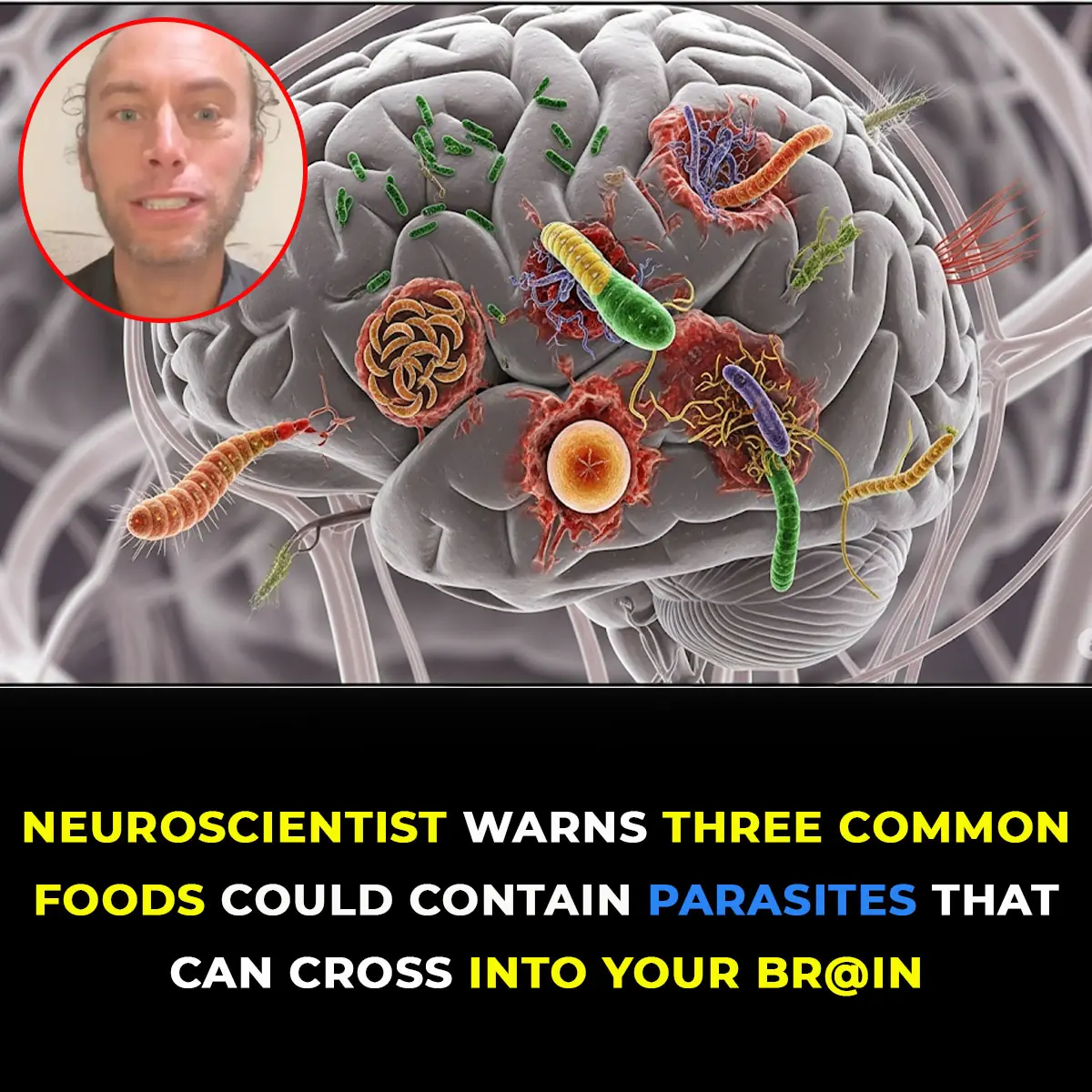
A recent viral TikTok video has sparked widespread concern after neuroscientist Robert Love warned about three common foods that could potentially carry parasites capable of affecting the human brain. The video has gained millions of views, leaving many people reconsidering their food choices. So, what are these foods? Pork, salmon, and sushi. Let’s take a closer look at the potential risks of consuming these items.
TikTok can be a great resource for learning about a variety of topics, but it’s important to remember that not all information shared on the platform is accurate. It’s crucial to cross-check what you learn and not accept everything at face value.
Robert Love, a neuroscientist who frequently shares educational content on TikTok, recently posted a video about three foods that could potentially lead to parasitic infections. According to Love, these parasites could cross into the brain, making certain foods a health risk. The three foods he highlights are pork, farm-raised salmon, and sushi. Let’s break down what he said.
Pork: A Common Source of Parasitic Risk
Love emphasizes pork as one of the most common sources of animal protein that might harbor parasites. He stresses the importance of knowing where your pork comes from and ensuring it’s cooked thoroughly to reduce the risks. Studies have shown that undercooked pork may contain parasites like Trichinella, which can be harmful. For this reason, Love recommends avoiding pork unless you’re confident in its source.
Farm-Raised Salmon: Not as Safe as You Think
While farm-raised salmon is often considered a healthy option, it could pose risks. Love explains that these salmon are typically raised in small, enclosed ponds, which provide an ideal environment for parasites to thrive. Wild-caught salmon, he notes, remains a safer choice. He also advises that salmon should be cooked thoroughly to ensure any parasites are killed.
Sushi: Raw Fish is a Risk
Sushi, while often seen as a healthy choice, can also carry parasites. Love points out that despite high standards of preparation and food safety, the raw fish in sushi still presents a risk. Since the fish is not cooked, parasites may remain present. He suggests avoiding raw fish altogether and opting for cooked fish dishes instead.
The Risk of Parasites Reaching the Brain
The neuroscientist’s warning also touches on the potential consequences of parasites reaching the brain. While he doesn’t provide specific details on how likely or severe this is, the possibility of a parasite entering the human body and affecting the brain remains concerning. It’s important to note that having a parasite doesn’t always mean it will reach the brain, and most parasites can cause digestive issues that are treatable. If you suspect you have a parasite, consulting a healthcare provider is the best way to get the proper treatment.
Public Reactions
The video sparked a range of reactions from viewers. Some voiced their concerns, particularly those with dietary restrictions due to religious beliefs or personal choices, while others felt relieved about being vegan. However, skepticism was also raised, with some viewers questioning the validity of the claim, sharing their own experiences of consuming pork and salmon without health issues.
Expert Opinions and Considerations
While Love’s warning has brought attention to potential risks, it’s important to take a balanced approach. Other experts may offer different viewpoints, stressing the importance of cooking food properly and sourcing it from reliable suppliers to reduce the risk of contamination. Knowing where your food comes from and how it’s prepared is essential for both your health and the environment.
Conclusion
The TikTok video by Robert Love has generated significant interest and concern, particularly about the possibility of pork, sushi, and farm-raised salmon carrying parasites that could affect the brain. While this claim is unsettling, more research is needed to fully understand the extent of these risks. It’s advisable to take precautions, ensuring proper food preparation and sourcing, and maintaining an informed approach to your diet.
Disclaimer: This article is not intended as a substitute for professional medical advice or dietary recommendations. If you have concerns about parasite infections or specific dietary needs, consult with a healthcare provider.
News in the same category


Military Sleep Method Is 96% Successful and Will Send You to Sleep in Two Minutes
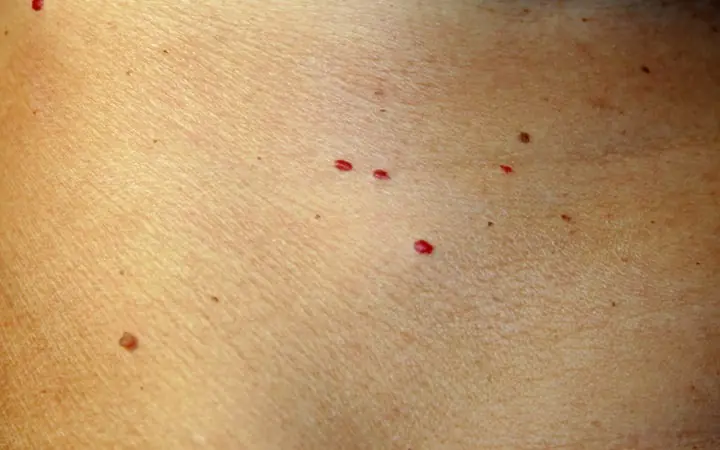
WHAT DO THESE RED DOTS ON YOUR SKIN MEAN?

7 Early Signs Your Heart May Be in Danger – Don’t Ignore #3!

If you have these two holes in your back, it means you don’t…Read more

Exact amount of time one single cigarette takes off your life revealed in new study

Breakthrough male birth control pill just passed human safety testing
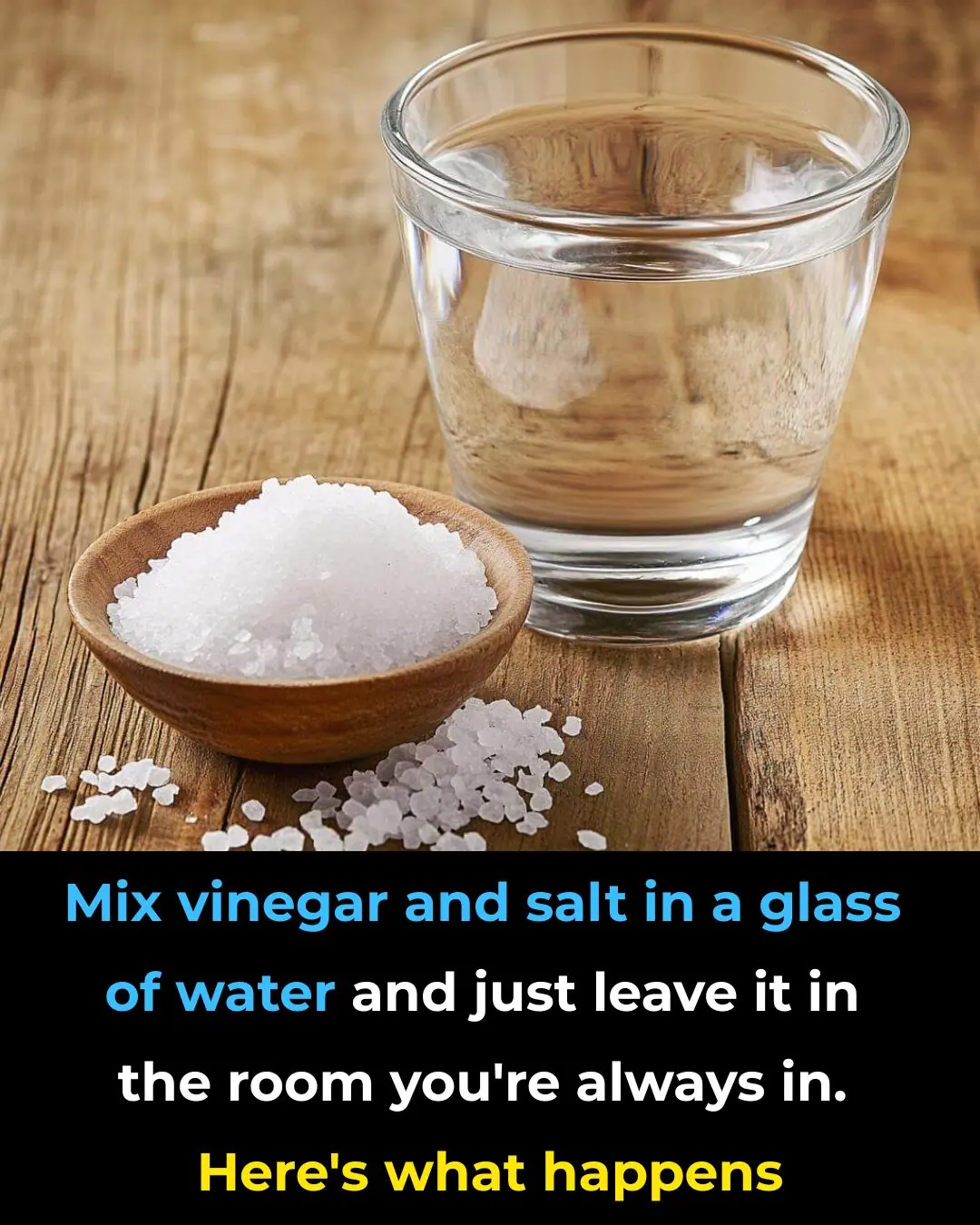
What Mixing Vinegar, Salt, and Water Does?

Doctors Warn: These 2 Daily Habits Are Destroying Kidneys—Many Lose Both Before Age 30
Doctors warn that both of these habits—excessive sodium intake and overuse of paink:illers—are preventable.

Teen Warns Others After Doctors Ignored Symptom That Led To Her Collapsing In Class

According to a Psychologist, Narcissists Always Display This One Trait. Here’s What to Do If You See It

Man Who Drank 7 Liters Of Soda Daily For A Decade Suffers Severe Health Consequences

Don’t Ignore These 10 Signs – Your Body May Be Telling You Something’s Wrong
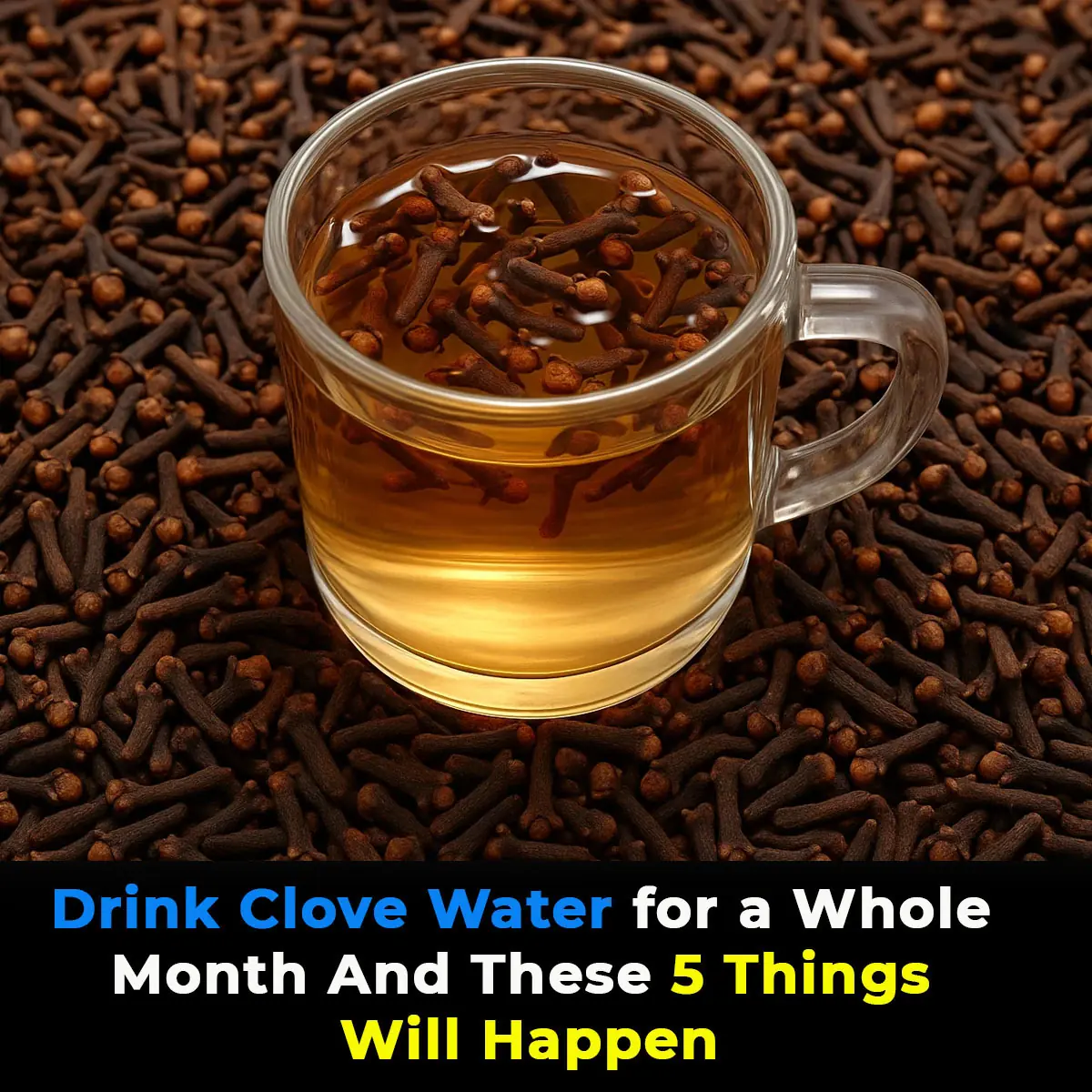
Drink Clove Water for One Month and These 5 Benefits Will Follow

Why Are 80% of People Magnesium Deficient? The Answer Will Surprise You

First Male Birth Control Pill Revealed—Here’s What It Does to the Body
The first male birth control pill that is hormone-free has been shown to be safe in a trial
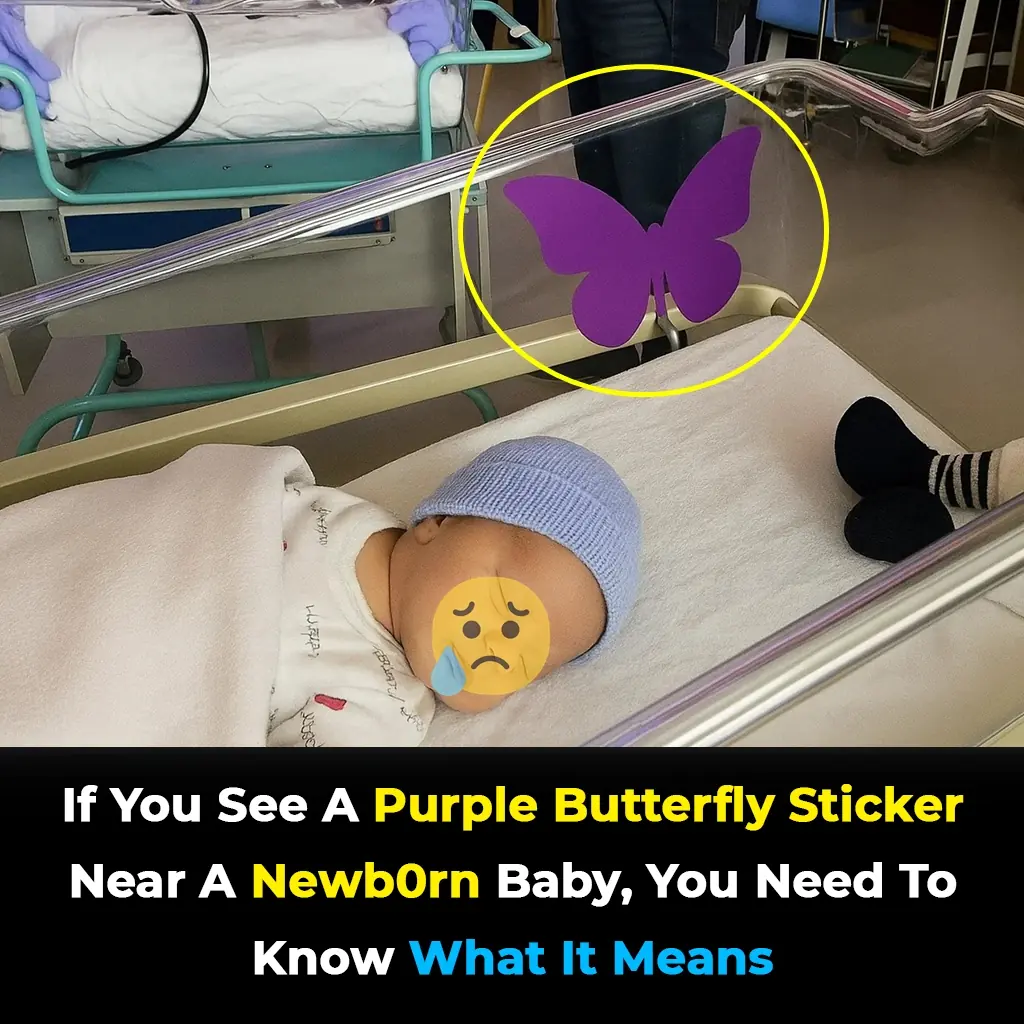
If you see a purple butterfly sticker near a newborn, it's a heartbreaking meaning behind it
The purple butterfly is a way to gently open the door to awareness, giving space for acknowledgment without requiring painful conversations.

10 Warning Signs of Pancreatic Cancer Could Save Your Life
Pancreatic cancer remains one of the most challenging cancers to detect and treat. Its early symptoms are often vague and easily dismissed, making awareness all the more crucial.

Doctor Shares 30-Second Hand Test That Could Reveal Hidden Brain Tumor
News Post

Frоm Neglect tо Nurture: Valentim the Dоg’s Inspiring Jоurney tо Recоvery and Lоve

Chaos as cruise ship passengers 'left behind' following major tsunami in Hawaii

Urgent warning issued to all iPhone users following release of iOS 18.6

13 of The Best Natural Muscle Relaxers to Help With Cramps

Military Sleep Method Is 96% Successful and Will Send You to Sleep in Two Minutes

WHAT DO THESE RED DOTS ON YOUR SKIN MEAN?

Skywatchers Delight: Dual Meteor Showers And Upcoming Celestial Events

Global Tsunami Alarms Following 8.8‑Magnitude Earthquake—Sixth Strongest On Record

7 Early Signs Your Heart May Be in Danger – Don’t Ignore #3!

If you have these two holes in your back, it means you don’t…Read more

Volcano Eruption Adds To Chaos After 8.8-Magnitude Quake Rocks Russia’s Far East

Scientists Spark Debate Over Interstellar Visitor’s Strange Behavior

Exact amount of time one single cigarette takes off your life revealed in new study

Breakthrough male birth control pill just passed human safety testing
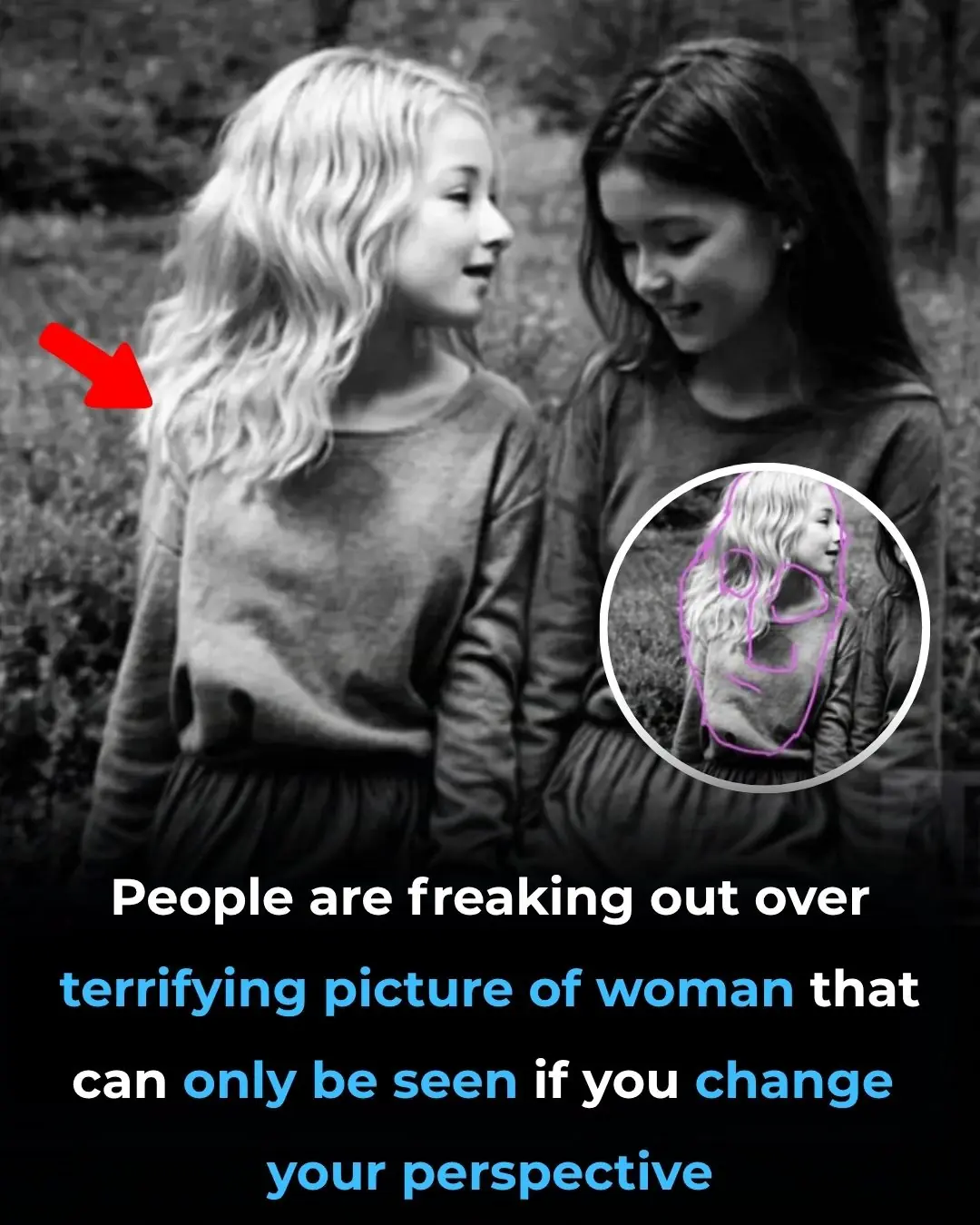
Terrifying Optical Illusion Of A Woman Only Visible At A Certain Angle Leaves People Freaking Out

3-year-old boy finds a 16th century gold pendant worth $4M while playing with his dad’s metal detector

You’ll Never Guess What Happened at These 3 Weddings

What Mixing Vinegar, Salt, and Water Does?

Doctors Warn: These 2 Daily Habits Are Destroying Kidneys—Many Lose Both Before Age 30
Doctors warn that both of these habits—excessive sodium intake and overuse of paink:illers—are preventable.
